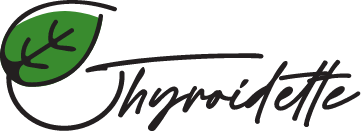Short review on nutrition and thyroid health
The article titled “Metabolic Characteristics of Hashimoto’s Thyroiditis Patients and the Role of Microelements and Diet in the Disease Management—An Overview”(Mikulska et al., 2022), is a pretty long and extensive review on several interventions regarding Hashimoto’s thyroiditis. Mikulska et al. (2022) wanted to look at “the Role of Microelements and Diet in the Disease Management”. A very broad topic and hence a very long paper, but also a very valid question. For this post I will highlight their main findings on nutrition.
– Several studies found that increased meat consumption was strongly associated with more aggressive disease state, and low meat consumption was associated with lower/no antibodies, with one study suggesting that the Mediterranean diet is most beneficial. (Mikulska et al., 2022)
-“ Some studies demonstrated that lactose restriction could lead to decreased levels of TSH in Hashimoto’s thyroiditis patients.”(Mikulska et al., 2022)
-Some studies found no effect with gluten free protocols, some did. One found that gluten free protocols with Se supplements was especially helpful. (Mikulska et al., 2022)
What I take from this study when working with clients is that a nutrition guideline for Hashimoto’s thyroiditis patients should have a somewhat anti-inflammatory effect. While several studies did find that more meat meant more inflammation and more thyroid antibodies, I wouldn’t necessarily jump to the conclusion that a vegetarian diet is best, but that food sourcing is important and that a client would likely benefit from more vegetables on their plate. If a client does feel better without dairy or without gluten, then that’s what it is. What Mikulska et al. (2022) highlight is that multiple nutritional deficiencies are common with Hashimoto’s thyroiditis. Check out this blog post for more details on this topic.
It is important to remember that a gluten free protocol is not just a gluten free protocol. We need to make sure the a client is eating nutrient dense foods and foods that support the body.
Reference
Mikulska, A. A., Karaźniewicz-Łada, M., Filipowicz, D., Ruchała, M., & Główka, F. K. (2022). Metabolic Characteristics of Hashimoto’s Thyroiditis Patients and the Role of Microelements and Diet in the Disease Management—An Overview. International journal of molecular sciences, 23(12), 6580. https://www.mdpi.com/1422-0067/23/12/6580



